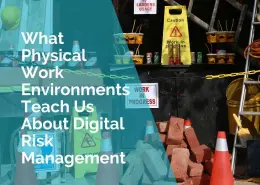How Emerging Fintech Tools Empower Small Business Owners
Running a small business isn’t for the faint-hearted. You go from being the accountant to customer service to chasing invoices like it’s an Olympic sport by Friday. When financial concerns are included, it’s no surprise that so many owners experience anxiety.
That’s why business-focused platforms point toward solutions that genuinely lighten the load. One of the biggest game-changers at the moment is fintech, or financial technology. These are straightforward tools that help business owners maintain cash flow. It also allows owners to understand where their money is going and obtain loans more readily.
It’s about growing and surviving in a cutthroat environment. Fintech may also be the extra helping hand that people who are juggling multiple tasks at once have always needed.
The Expanding Fintech Toolbox for Entrepreneurs
The list of fintech tools is growing so quickly that traditional spreadsheets look like museum pieces. Want to take card payments at a weekend market? There’s an app for that. Need to send an invoice before you’ve even left a client meeting? Done.
Some tools reach beyond day-to-day business. For entrepreneurs curious about financial innovations, even investment platforms like those mentioned in this Dub App copy trading review show how fintech is transforming decision-making. Not every bakery or landscaping business will dive into copy trading. Still, the point is that financial strategies once locked away for experts are now accessible to anyone with a smartphone.
The common denominator here is time saved. Instead of chasing numbers late at night, business owners can automate the boring but critical stuff. That means more energy for the things only they can do – serving customers, creating new products, and building a business that actually excites them.
Cash Flow Control without the Panic Button
Cash flow is the number one stressor for most small businesses. One missed payment from a client can feel like a house of cards wobbling.Cash Flow: What It Is, How It Works, and How to Analyze It That’s where fintech earns its keep.
Modern apps now give real-time updates on income and expenses. You don’t have to wait for a monthly bank statement to find out you’re short. Automated invoicing systems send polite reminders so business owners don’t have to play debt collector. Mobile payment platforms mean money arrives instantly, not weeks later.
Some tools even predict trouble before it lands. Imagine getting a friendly alert that says, “Hey, cash flow could be tight next month. Maybe hold off on that big equipment purchase.” It’s less about scaring owners and more about giving them the chance to plan.
The real win here? Peace of mind. Small business owners can finally manage money without living in constant fear of a financial blindside.
Funding Made Less Painful
Ask a small business owner about applying for a traditional bank loan, and you’ll likely get an eye roll followed by a story about paperwork that could wallpaper an office. Approval can take weeks, and sometimes the answer is still “no.”
Fintech lenders flipped this process on its head. By evaluating transaction history and sales data, these platforms may authorize loans in hours instead of months. The conditions that allow repayment schedules to adapt to fluctuations in earnings are frequently created with small enterprises in mind.
That flexibility matters. For owners, it means less stress over fixed monthly payments during a slow season. This is the first time that the system adapts to the business rather than the other way around.
While it doesn’t eliminate all obstacles, it does make funding more approachable and less daunting. Instead of chasing loan officers, business owners can focus on what they actually signed up for—running and growing their business.
Leveling the Playing Field with Smart Insights
In the past, big corporations had a whole team of analysts crunching numbers. Small businesses? Just a calculator, some receipts, and a lot of gut instinct. Fintech has completely leveled that playing field.
Budgeting apps now automatically arrange expenses, saving owners from spending their late nights sifting through shoeboxes of receipts. AI-powered dashboards can identify areas with rising expenses or show spending trends. Some apps even send weekly health reports that resemble a pleasant check-in: “This month, you’re spending more on supplies.” Want to see why?”
This kind of insight used to cost thousands in accounting fees. Now it comes built into affordable apps that fit neatly into daily routines. For owners, it’s like finally having a financial co-pilot.
The most significant benefit isn’t just better numbers. It’s confidence. When data support decisions, they seem less arbitrary. And that assurance is evident everywhere, from more intelligent investments to more relaxed interactions with suppliers.
Security and Trust in a Digital World
Of course, handing financial data to an app makes plenty of small business owners uneasy. It’s natural to wonder: what if hackers get in? What if the app fails? The fear is real, especially when every dollar counts.
Here’s the thing: fintech companies know trust is their lifeline. Encryption locks down sensitive data, two-factor authentication adds an extra layer of security, and many platforms operate under strict regulations that compel them to maintain high standards.
It’s not that risk disappears, but the tools are designed to make breaches rare and recovery faster. Fraud detection systems work quietly in the background, spotting suspicious activity before it turns into a disaster. And when owners do run into issues, support teams are often easier to reach than the local bank.
So yes, caution makes sense. But security is no longer the reason to avoid fintech. In fact, for many small businesses, digital tools are safer than the outdated systems they replace.
Fintech as a Partner, Not Just a Tool
Let’s be honest: nobody launches a bakery, a plumbing service, or a design studio because they love spreadsheets. They start because they love the work itself. The numbers? They just tag along for the ride.
Like a silent partner, fintech takes over by managing wages, automating spending, and maintaining the financial machinery. Owners no longer have to bear all the responsibilities alone, but they still make the decisions.
The real gift here is time. Time to focus on the menu, the marketing, the customers, or even just catching a breath. Time to put energy into the parts of business that bring joy instead of stress.
Fintech doesn’t replace the hustle and creativity that keep small businesses alive. It simply supports them, making sure owners aren’t weighed down by the things that used to steal their evenings and weekends.
Conclusion
It will never be simple to run a small firm. Long hours, difficult decisions, and days when things don’t go as planned are inevitable. Fintech, however, is demonstrating that some of the most challenging aspects don’t have to remain that way.
Payments are faster. Loans are simpler. Insights are clearer. Security is stronger. Every step forward makes the future a little more doable and the daily struggle a little less daunting.
Hard labour is not something that entrepreneurs should replace. It’s about giving that hard work the right tools to succeed. Whether it’s a local café, a freelance studio, or a family-run store, fintech is giving small businesses a fighting chance to grow without being buried under financial stress.
Additionally, communities prosper when small enterprises prosper. Helping ideas turn into opportunities, one transaction at a time, is the true power of these new technologies.
***
Vic










